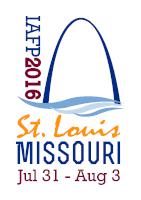 |
July 31 – August 3, 2016 : IAFP Annual Meeting – St. Louis, Missouri, USA |
According to food safety regulations and guidelines, Food Business Operators (FBOs) may be required to conduct challenge tests in order to check compliance with established microbiological criteria. Therefore, they have to investigate the ability of micro-organisms of concern to grow or to survive in their food products during the shelf-life, under different reasonably foreseeable storage conditions. The Codex Alimentarius has served the worldwide development in food trade, providing guidelines that FBOs can use for the exposure component in a Microbial Risk Assessment (MRA) based on: (i) data available from various publications and databases, (ii) features associated to the different pathogens and spoilers, (iii) results from challenge-tests and predictive modeling. It makes sense that:
- The available data and the fitting accuracy should be carefully reviewed to help in designing challenge test studies;
- Challenge-tests should comply with internationally recognized Guidance Documents recommended by regulatory bodies;
- The biological values, which help in predicting strains behavior, should be determined according to good laboratory practices and quality assurance procedures, providing accurate values with the related standard deviations;
- The predictive modeling should be done using foolproof calculators under quality assurance, using state-of-the art approaches. Combining challenge-test results with international databases and predictive modeling applications definitively improve exposure assessment in an MRA and may save resources and time!
At the end of the day, FBOs will feel confident:
- Being critical on data acquisition and simulations, then feeling confident on the meaning of the study results and conclusions
- Running meaningful challenge-tests complying with international guidance documents, and including predictive modeling
- Juggling between the different international databases and predictive modeling software applications
- Understanding how results from challenge tests may be used in assessing exposure in an MRA to help validate compliance with regulatory criteria and ensure fair food trade.
Rachel Binet, U.S. Food and Drug Administration, College Park, MD
Patrick Bird, Q Laboratories, Inc., Cincinnati, OH
Noémie Desriac, ADRIA, Quimper, France
Daniele Sohier, Adria Expert Laboratory, Quimper, France



